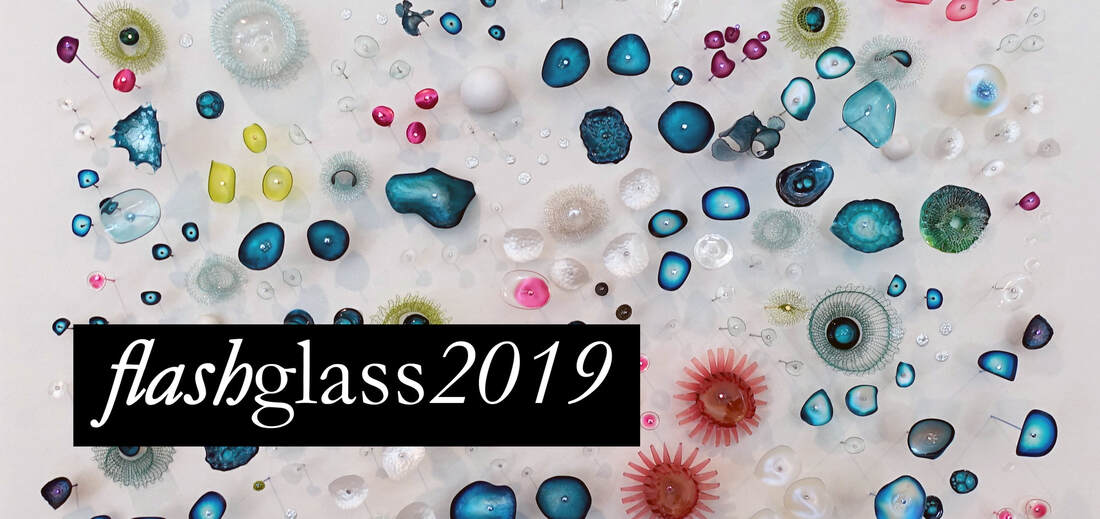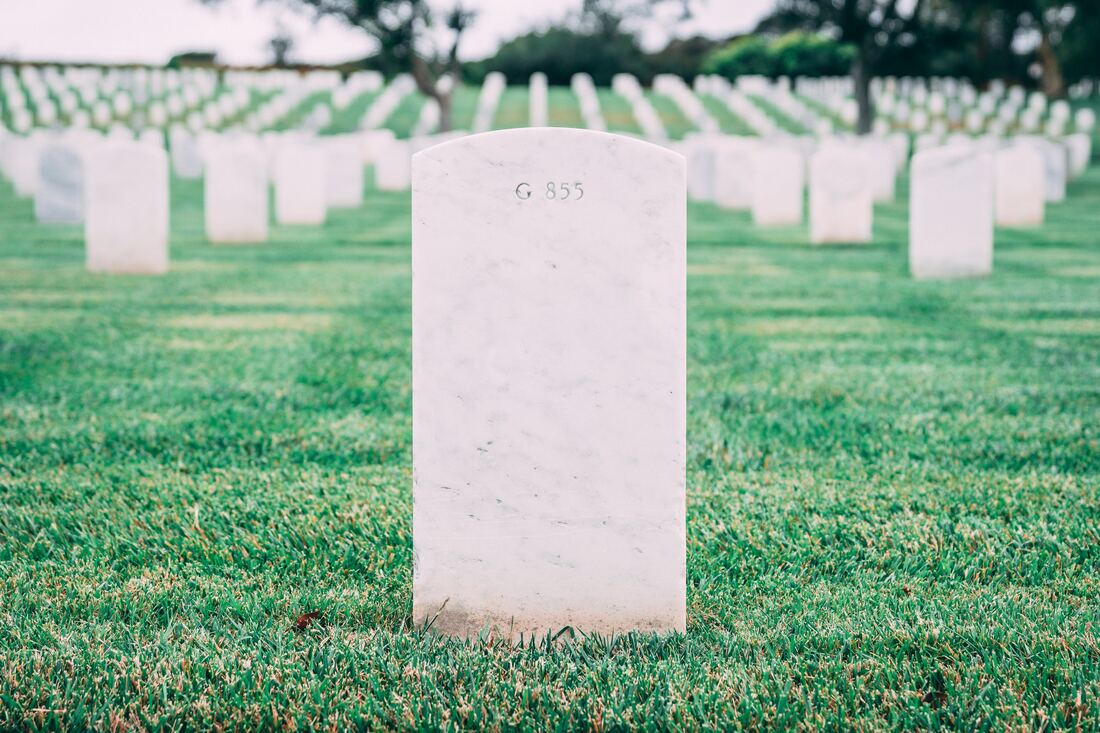|
We are pleased to present our annual flashglass anthology! Comprised of all flash works originally published online at rowanglassworks.org in 2019, this anthology is available for online viewing and for purchase in print. Copies will also be available for $5 cash at the AWP Conference and Bookfair in San Antonio, Texas this March and at our upcoming readings at Rowan University.
Thanks to all our contributors for allowing us to present their work this year! 
By Glassworks Magazine in flashglass 32 pages, published 1/1/2020
an anthology of work originally published at rowanglassworks.org
0 Comments
Then there’s the time I went to Books and Books in Coral Gables to see Howard Nemerov, and though I can’t remember anything he read—either it wasn’t memorable, or my memory is on the loose in someone else’s mind—I remember the wine & cheese afterward upstairs where I expected Jacob Marley or Boris Karloff to emerge from the bookshelves. Anyway, I walk up to Nemerov with a plastic cup of wine and a paper plate of cheese chunks and tell him I loved his reading-- which was a lie—I said Mr. Nemerov—I thought the Mr. was appropriate out of respect though I learned later from a friend that the old coot had been grabbing the asses of half the women at the reading, but it was Mr. Nemerov, and I told him I had a horrible job selling messages-on-hold to telephone companies that sold telephone systems and earned fifty-thousand dollars a year, which was pretty hot shit, especially back then, especially for a guy like me, no college, no trade, just a high school diploma, and I said Mr. Nemerov, should I quit my job and concentrate on poetry? He leaned forward like a lumbering Dean Martin with his bloodshot eyes and alcohol breath, and just looked at me like I was a fucking idiot. Lenny DellaRocca is founder and co-publisher of South Florida Poetry Journal - SoFloPoJo.
My sanity hangs from a single, brilliant, dew-soaked spider thread. I did not ask for this. You did not ask for this. These hurricanes of fury and passion and wreckage and fear which have no end. Ahead of the eye, walls of gray rain march forward, fierce and unrestrained. Behind, tornadoes and bolts of fire descend from the angry sky, shocking the land and its overflowing waters. In between the storms, the sun shines, and we rebuild. Standing behind the big chair in our living room, I watch, through little pools of tears, as the raging hand of mania strangles you. And I curse the sadness I know will follow and try to drown you. The shadowy, gnawing beast has come out of hiding and has swallowed you whole. I have lost you again. As despair pulls me under, a bird catches me and lifts me back up. Through the window next to me, he lands at the feeder. A sun-yellow body draped in a night-black hood. His beauty is so stunning, so perfect, he is all I can see. My eyes fill again with little pools. How can there be so much beauty in the middle of so much pain? Yet here he is. Right now, in this moment, with this pain. Having had his fill of sweet nectar, he disappears over the tops of the trees, carrying the bright sun and dark night with him as he steals away. And leaves a little piece of sanity behind.  Amy Sugeno is a mental health therapist, mindfulness teacher, and former wildlife biologist. A life-long outdoor-lover, she has tracked rattlesnakes in dusty deserts and taught people to meditate in fields and forests. Amy lives outside of Austin in the rocky and rugged Texas Hill Country. She is currently working on a collection of creative nonfiction essays about nature, mindfulness, and adoption. Visit her online at www.amylsugeno.com  Tía María’s face fell down on a hot July day while she changed clothes in front of a window fan. Abuela called and I could hear her frantic voice over the phone as I stood close to Mami. We rushed to the subway. I was five so I imagined we were going to Tía María’s apartment to help pick up the pieces of her face and put them back in the right spots. I touched my nose, mouth, eyes. It would be funny to mix everything up. Mami cursed the heat, the subway, the city. The doctor used the word droop when talking about the right side of Tía María’s face. But in Spanish things don’t droop. They fall down. And that’s how it looked to me – eye, cheek, mouth all fallen down, down. “Can you not smile at me, Titi?” I asked. A tear ran down her paralyzed cheek. Abuela blamed it on the fan because cool air on a hot body is dangerous. She also believed night air was full of diseases and that people could make you sick with the evil eye. Mami wanted to know where that bastard Hector was. Hector was Tía María’s husband and a minister. “He is down in the Bowery saving the souls of whores just like Jesus Christ did,” Tía María said. “He is a man of God,” Abuela said. “He will pray and María will get better.” The doctor looked at us in a way that made me think he did not like us much. It made me sad. “Have you experienced any recent head injuries?” he asked. “Like being pushed out of a moving car?” Mami said. “I slid when Hector made a sharp turn,” Tía María said. “Or being shoved down a flight of stairs?” Mami said. “She tripped. Always so clumsy,” Abuela said. “And how about being knocked to the floor?” Mami said. Then she raised her hand before anyone could speak. “Oh, yeah... sure. You fainted.” Abuela caressed her daughter’s ruined face. “It was the fault of the fan. Cool air on a hot body can be deadly. Hector is a man of God. He will pray and María will get better.” Mami cursed. The doctor left. And I prayed that my Tía María would someday smile at me again. Sandra Cimadori was born in New York and grew up in South Florida in a multilingual home. She graduated from Florida State University. She teaches and writes, dividing her time between North Carolina and Florida. Visit her online at: www.sandracimadori.com
I. Atoms and words combine themselves into complex structures: molecules and sentences, poems and beings. These pieces hold a limited amount of meaning alone, but it is only through the interconnected relationships of these base elements that they can ever become alive. To break apart these structures is to kneel before a pile of discrete pieces of information. A cell is defined by its purpose for the body as a whole, a word by the body of work. There is value in the syntax, the order, the configuration. Rearrange the elements and the whole thing may fall apart. II. Language evolves. As time goes on, a combination of sounds mutates into something that doesn’t resemble itself anymore. Every time a sequence is copied, it brings the threat (or blessing) of alteration. Without this swerve, every product created by nature or poet would be a mere copy of the original. III. A good poem already exists. The writer can imitate it, ensuring that she never rises above her predecessors and lives her life a parrot. She can rebel against it, at the risk of estranging her readers and defining her work by spite. Or she can take that work and distort it slightly, expand the boundaries to her advantage, test the limits without going too far off the edge. Nature works the same way; she is a fine poet. IV. Poems adapt to the fitness of their environment. As language evolves, the values of art must shift as well, else they will become extinct due to the meager supply of fitting words. The ideal poetic line is a genome, manipulated by entropy until an infinite series of variables miraculously synchronize with its surroundings, and it thrives. It’s hard to watch old words die. They don’t represent the language of the listeners anymore, but they preserve the language of the writers. Leave them behind when history turns its page. They will be fine. V. Poetry is a ring species. It is tempting to categorize history into eras. A segment of time is defined by one concept, and then in one single strike of the clock is defined by another. The division of history into Renaissance and Shakespearean and Romantic erases the links in between that hold them together. Change is a gradual process. The process isn’t over yet. Every individual moment is an era, defined by itself. VI. Think about the music of the spheres. The universal symphony is never over; as one tune ends, an elided cadence begins a new melody, recombining the same notes into an impossible number of variations. The last line of one poem is the opening to another. As long as art continues, it can’t really fail; even a poor piece of writing or a mislaid tune may serve as inspiration for the next. The only mistake is to stop creating. Everything finds its natural place in the end.  Audrey Dubois is a Rhode Island poet and creative writing graduate student at Emerson College. She likes weird antiques, frozen yogurt, and PBS documentaries about Karen Carpenter. You can find her on social media as @platypusinplaid When my children were young, when I was run ragged working, dieting, and binge eating while sparring itinerant depression, my mother sent me crisp $20 bills with the note, "for the grave." She meant her mother's grave—my Noni, toughest broad I'd ever known, the one who loved me most fiercely. I lived near Noni's cemetery in New Jersey, but Mom had moved 2700 miles across the land. In spring, she wanted me to plant fresh annuals on Noni's resting place; in December, to lay a plastic holiday wreath; at Easter, to pound a palm cross into the ground; in fall to put potted purple mums in front of the stone where it said Josephine Marco. Some days, some years, I did those things, stopping first at the nursery or supermarket with my two sweet and curious boys, then parking along the narrow-edged cemetery lane. There, I'd unload the older boy along with his bright green shovel, my hammer, a pink water can, and bundle the smaller boy into his stroller. Some days, some years, we snapped pictures—me, hair astray, wearing a dirt-smudged too-tight top, and two smiley boys, not at all bewildered to be posing in that quiet, verdant place, next to a granite marker. When my boys were nearly men, I found those photos in my dead mother's nightstand, and was sickened with a sharp stab of guilt. Although I always said, "Yes, I took care of it," when Mom asked if I did the grave, what she never knew is often, I didn't. I hadn’t. Instead, the twenties went toward a toddler's eyeglasses, my therapist bill, ingredients for ice box cake—the bananas-graham crackers-pudding dessert Noni fed her grandchildren every Sunday. I never confessed because it didn't feel like cheating, then. It felt like a kind of fierce love. Today, Mom is buried nearby, and I'm not so sure.  Lisa Romeo is the author of the memoir Starting with Goodbye (University of Nevada Press). Her nonfiction is listed in Best American Essays 2018 & 2016, and has appeared in the New York Times, Longreads, Brevity, among other places. She lives in New Jersey. Visit Lisa online at: http://LisaRomeo.net  with two lines after Ursula K. Le Guin’s "The Left Hand of Darkness" Now nameless I will go seek my death. I enter as the rest have, bumping into those around me, randomly, entropic. But this is no closed system. Faced with two choices, I decide left. The path is narrow, cold. A dead end-- I see myself, the self I was when I was eight, running from mother, her chasing me through the stalks with a bottle of medicine, telling me with her hinting southern voice darling this’ll help you let me blow your nose you have a fever-- I double back, take the right, and for hours (or else, weeks, my beard thickens with each frozen step), I wander through the dark maze. When hungry, I shuck an ear of raw corn, drop to my knees and sink my teeth-- There’s a long straight hall (if one can call a row of barren field between stalks of decaying corn a hall) with no turns. The corn here wilts, limp as a cow’s utters. Too thick for water to reach. Dirt is dust. I delve further-- An open area, the size of my first apartment. Myself, now nineteen, stampedes into where the living room would be. I am master-fate, I am minotaur-breath, I am become death, destroyer of plastered walls. My fist meets white barrier-- My own footsteps, missteps, places I was lost, couldn’t find my way out. I’m eleven and I push my brother down the stairs, I’m walking through desolate streets with Patrick at four a.m., I can’t breathe. I try, find-swallow empty words-- In another dead end, I see my first dog, Binky, named because I was an infant, obsessed. I follow her through mindless turns of the maze, she pleads with me Where have you been why aren’t you here I protected you I protected you I-- There’s my father, from what I remember. He sips a beer, I’m seven, I ask him for a taste. He looks to see my mother isn’t around, says we’re all dead ends. We who kill ourselves dwell here. I grip the glass and open wide-- Corn grows stale. Each day I chart the stars from within the maze, a makeshift sextant borne of corn stalks, try to get a sense of direction. I remember being seven, hiding from my aunt between soft rolls of clothes. She calls my name-- Winter enters the maze. I wear a coat of corn, my hair married to icicles. I see my grandfather Christmas morning. I got a camera that year, it was the last time I saw him. He whistles a tune with no rhythm, he calls me Jimster I called him-- It’s been years. I forget my name, shrug it off like so many coats. Each turn feels familiar. I unexist, I’ve always been here. Find me there, muttering incoherencies to myself, beard sticky with corn juice, running into each solitary dead end-- Jimmy Hollenbeck is a graduate student/assistant at Central Michigan University, currently working in their writing center. His hobbies include brewing beer, reading comic books well past the typical age, and listening to jazz and pretending he understands it. He hopes to graduate in December 2019 with his M.A. in creative writing and to pursue an M.F.A. following that.
 My younger sister takes the spray can of dry shampoo from the table where I left it, after I complain that it never works, never wicks the grease from my hair the way I need it to. She’s always been better at this stuff than me. Ever since we were children and Kate would swoop perfect layers of purple polish onto her tiny fingernails. My fingers always looked like a crime scene, they still do, even though now I’m approaching thirty and have learned to just pay for a manicure instead. “You’re just not using enough,” She says in the same rough way she says most things to me. Years ago, I would snapped back with something rougher, but years ago she would never have taken the can to help, as she does this morning. After I close my eyes, she unloads the can into my hair, pressurized ammo that chills my scalp. Between long blasts, she runs her fingers through my hair, working the product in. “You gotta really get in there,” she says, after one last spray. I open my eyes and catch my breath. “So?” I ask. “How does it look?” She shrugs. “Better,” she says. I don’t believe her. But we’ve spent enough time lingering in her best friend’s white, bright kitchen. I have a train to catch. We eat omelets fat with feta cheese and bacon and onions and peppers in the diner of our shared childhood. They’ve torn down the façade outside to update it, but indoors is still the same. Turquoise vinyl banquettes, mirrors arching around the edges of the ceiling, neon signs sputtering above the bar. It’s all nostalgia, alive and breathing. “They’ll change this next,” Kate says, knowing what I’m thinking. The next time we’re both home together—neither of us knows when that will be or if we’ll be getting along still—this place will be gone. Places move on without you, is one of the first lessons I learned as an adult. We leave, tipping generously. Every waitress reminds me of our mother, and I leave my guilt behind in 5s and 10s. There’s dirt under my fingernails, yesterday’s deodorant still in my armpits. Mica from beach sand glitters my feet. Yesterday, we drove to Hammonasset and spent the afternoon standing ankle-deep in the calm Atlantic. We talked the way we both have always wanted to talk, we laughed easily and shared ourselves with each other. I’m grateful that sometimes people don’t move on without you. That they pause and look back and wait for you to catch up. I sip cold brew on the Metronorth after Kate drops me at the station. The train hurries. I watch through the window as the green slips away, watch as concrete and metal replaces it, watch as the city builds itself, mile after mile after mile. It’s a subtle shift, one that builds so gradually you’ll miss it, if you aren’t looking for it.  Christina Harrington graduated from Sarah Lawrence College in 2014 with her MFA, where she was the managing editor for LUMINA. Since graduating, she has fulfilled a lifelong dream by working in the comic book industry, first for Marvel Comics and now as the managing editor for AfterShock Comics. You can find her work forthcoming in Foliate Oak Literary Magazine and Gyroscope Review.  I was thirteen when the cancer took my father. Old enough to comprehend, young enough to shatter me. He spent hours in his workshop building model airplanes, wearing thick bifocals, and sticking his tongue out as he pressed glue to plastic. I sat in the stool next to his and create Blackbirds, Hellcats, and Blackjack Bombers. We never talked; we concentrated. He pointed and patted and slowed things down with his hairy hands. I stopped building planes with him when I turned twelve; I think it bruised him. We talked more but connected less. I didn’t know he was sick. He built the last few planes by himself, alone with his disease. I would pass by the workshop and roll my eyes. He never looked up from his work, but he knew I was there. Did he wait for me to open the workshop door, hoping to hear the familiar creak of its rusty hinges, getting a little bit sicker each time I didn’t turn the knob? I sat on the sleeper chair next to his hospital bed. Right before he died, he whispered, “I finished it.” He told me where to find it, in a wooden box under the hobby table. The World War II military warbird had taken two years to finish. The last time I worked on it was the last time I worked on anything. My wing wouldn’t stay on and I stormed off, never to sit next to my father again. Yet here I was, holding his hairy hand as his soul exited his body. I found the warbird and marveled at its intricacies, staring at it for hours. Good and bad memories collided and became jumbled until I couldn’t tell whether my time with him was mostly happy or mostly sad. I told him I didn’t want to end up like him, just a big kid stuck in an old man’s body doing childish things. I wanted to wake him up and take it all back. Tell him it’s not stupid, it’s cool; it’s not childish, it’s timeless. I carried the warbird outside and waited for the wind to change. Cyrus Bly and his cronies skateboarded down the street, flicking lit cigarettes at each other. I stayed still and hoped they wouldn’t notice me. Cyrus raised his arm and the whole crew stopped and jumped off their skateboards. “Hey, guys, look, it’s little dick Ritchie and his baby airplane!” Cyrus announced. I tucked the plane close to my chest like an unfit mother holding her child for the last time. Cyrus snatched the warbird and pushed me down. He crushed the plane over his knee and kicked the wreckage. They laughed, threw high-fives, and skated off. I shuffled the broken pieces around on the lawn like a detective inventorying a dismembered body. I carried them to the workshop and placed them gently on the hobby table. With his bifocals on my head and my tongue out, I began. David S. Osgood is a short story writer. He resides in Holly Springs, North Carolina, where rural and suburban collide among crepe myrtles, and he has a B.A. in Creative Writing from the University of Southern California. 2019 has been a breakout year for David: he is celebrating his first publications in Open: Journal of Arts & Letters, Crack the Spine, Firewords, Treehouse, and Eastern Iowa Review, and he won the Microfiction Honorable Mention Award from San Antonio Writer's Guild. David’s website is designed for wanderers to discover and dream. Find him at: www.davidsosgood.com.
 When the dying time came, like a gavel struck demanding pallor and ash, you receded from a house to a room to a box, destined for a closet sharing flat caramel carpet with these feet. You are boxed and taped and I am full—possessing your images, your proof’s—of jury seats, divorce decrees, of love letters resealed by time, of certificates of birth and fevered secrets poked in drawers—of Jew and Black etudes—clamoring, when all I crave is erudition; your counsel of skirt hems and bad men, of how many bags form a lazy man’s load, up these stairs, up my steps and not your own. Where do you end/ I start, orphaned ridiculously old, mourning this closeted quay at which I sometimes cower; confused sole cantor seeking words, rustling sermons that append pogroms, lunch counters, tar paper shacks and vile beginnings, but not too much—not to unceasing oppression, a sole source in readiness—for here there is no silo to grease lest rats steal our grits, nor chilblains to treat, nor blood-soaked rags to hang on a line, there is only me. Heidi Richardson is originally from San Francisco and is a Creative Writing alumna from California State University, San Bernardino. A 2014 Pushcart Prize nominee and 2016 Cave Canem Book Prize finalist, her work has previously appeared in Ghost Town Literary Journal and Pacific Review.
|
FLASH GLASS: A MONTHLY PUBLICATION OF FLASH FICTION, PROSE POETRY, & MICRO ESSAYSCategories
All
Cover Image: "A Peaceful Coexistence Part II"
|
|
Glassworks is a publication of Rowan University's Master of Arts in Writing 260 Victoria Street • Glassboro, New Jersey 08028 [email protected] |
All Content on this Site (c) 2024 Glassworks
|







 RSS Feed
RSS Feed
